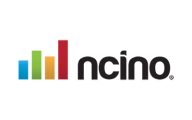Today with multiple extraordinary forces as play, executive leaders are facing big challenges.
Amongst the biggest is the media-coined term ‘The Mass Resignation’. 70% of Australian executives now say that attracting and retaining talent is their primary worry, this is amid declining migration, a pandemic and now devastating weather events. Lack of talent is set to remain a key concern for executives for the next three to five years.1
At the same time leaders are under intense pressure to accelerate their future digitisation efforts so they can more easily keep ahead of fast-changing customer and employee trends, volatile market conditions, and disrupters who now transcend traditional industry and country borders—posing a further risk to employee retention along with customer retention and market share.
Marketers are tasked with supporting all the product and program initiatives to seize opportunities and combat threats, but there’s more work and roles to fill than people to put in them. And many in the tech B2B industry, especially smaller businesses with a strong product focus, don’t have any internal marketing capabilities at all.
So how can outsourced marketing directors with the right credentials help marketing leaders and other executives to circumnavigate issues and create commercial value? Let’s take a look.
1. Save time and money
When marketing executives need support, they often engage advertising agencies rather than individuals. Advertising agencies are renown for having layers of hierarchy often spanning business executives, strategists, account directors, senior account managers and account executives, and then similar layers through the creative teams.
These layers of hierarchy can drag out timelines and drive-up costs, as all the people on the project are billed by the hour, but only a handful are likely to be adding real value. With so many people on the project, it also comes back to the marketing leader to manage everything to make sure the project stays on track in ways that contribute to the outcomes they need to achieve.
Outsourced marketing directors can provide an alternative model that can help remove unnecessary ‘fat’ that isn’t contributing value. Outsourced marketing directors essentially become seamless extensions of internal marketing and/or executive teams depending on the size of businesses. And their role can be defined based on the clients’ needs and project scope. Outsourced marketing directors have skills to create specialist teams of experienced suppliers and lead initiatives on behalf of clients through key stages including strategy, execution, reporting and optimisation.
This approach can save time, as each member of the specialist team has a clear role and is 100% accountable for delivering with no double-ups. Outsourced marketing directors are tasked with managing teams on behalf of clients, providing a trusted go-to person who knows the ins and outs of the project. This approach also saves money, as individuals in the team are likely to have more competitive freelance rates, lower overheads and more flexibility and autonomy around how they work, than their agency counter-parts.
2. Multi-disciplinarians simplify project complexity
Agencies tend to have very rigid roles and responsibilities, with lots of ‘hand-off’ points. For example, in a large agency, you’d never see strategists doing timelines, creating weekly WIPs or reviewing every piece of content to ensure that it’s 100% ‘on-strategy’ – and in agencies there’s likely to be lots of meetings to continuously share knowledge—the more complex the project, the more likely that something will fall between the cracks or be lost in translation between departments.
In comparison experienced outsourced marketing directors are likely to have broader skillsets honed from engagement across extensive roles, projects and disciplines. They then roll all this experience into a unique package where one person can answer more of the clients’ needs—and as an extension of internal teams they also bring a strong sense of care and accountability to shared goals.
By taking on more roles through the end-to-end process, outsourced marketing directors are likely to have a stronger handle on projects at any given stage, essentially giving clients one ‘go-to’ contact to help them to easily and quickly know where things are at, get their questions answered and understand next steps. Having a committed senior marketing resource across their projects, also means that issues and challenges will be foreseen and addressed before they potentially become showstoppers.
3. Tap into an incredible network of freelance talent
In a hot employees’ market, executive leaders can be faced with inflated salary-asks that are out-of-whack with the capabilities and experience of candidates. This means executives can invest precious time interviewing, negotiating and training people who often end up being able to talk-the-talk better than they can walk-the-walk. This is a big risk with an outcome that is often hard and costly to undo.
By comparison experienced outsourced marketing directors are likely to have a network of tried and trusted suppliers acquired over decades, that they can pull into projects on an as-needs basis, and when the ‘fit’ is right. This means businesses can invest in talent that creates value, delivering a greater return on investment.
The Covid-19 pandemic sparked a sharp rise in the ‘gig’ economy, There’s now with over one billion freelancers globally and this number continues to rise 2, so it’s important that Australian business leaders know how to tap into this wider pool of talent. Global consultancy firm Korn Ferry states,
“By 2030, there will be a global human talent shortage of more than 85 million people… Left unchecked, in 2030 that talent shortage could result in about $8.5 trillion in unrealized annual revenues.” 2
When it comes to driving commercial outcomes, outsourced marketing directors present a cost-effective alternative to the traditional agency model and hiring under-qualified staff. Relationships are flexible and can be designed to help business leaders circumnavigate talent shortages, at the same time as seizing opportunities to grow value.
Want to learn more?
Mel Johnstone is an experienced marketing strategist and trusted outsourced marketing director to both enterprises and SMBs in the B2B tech space. Get in touch to discuss your outsourced marketing needs.
AFR, Jan 2022, Staff shortages will take three to five years to fade: KPMG 1
Expert 360, Jan 2020 4 Trends All Freelancers Need to Take Advantage of in 2022 2

















